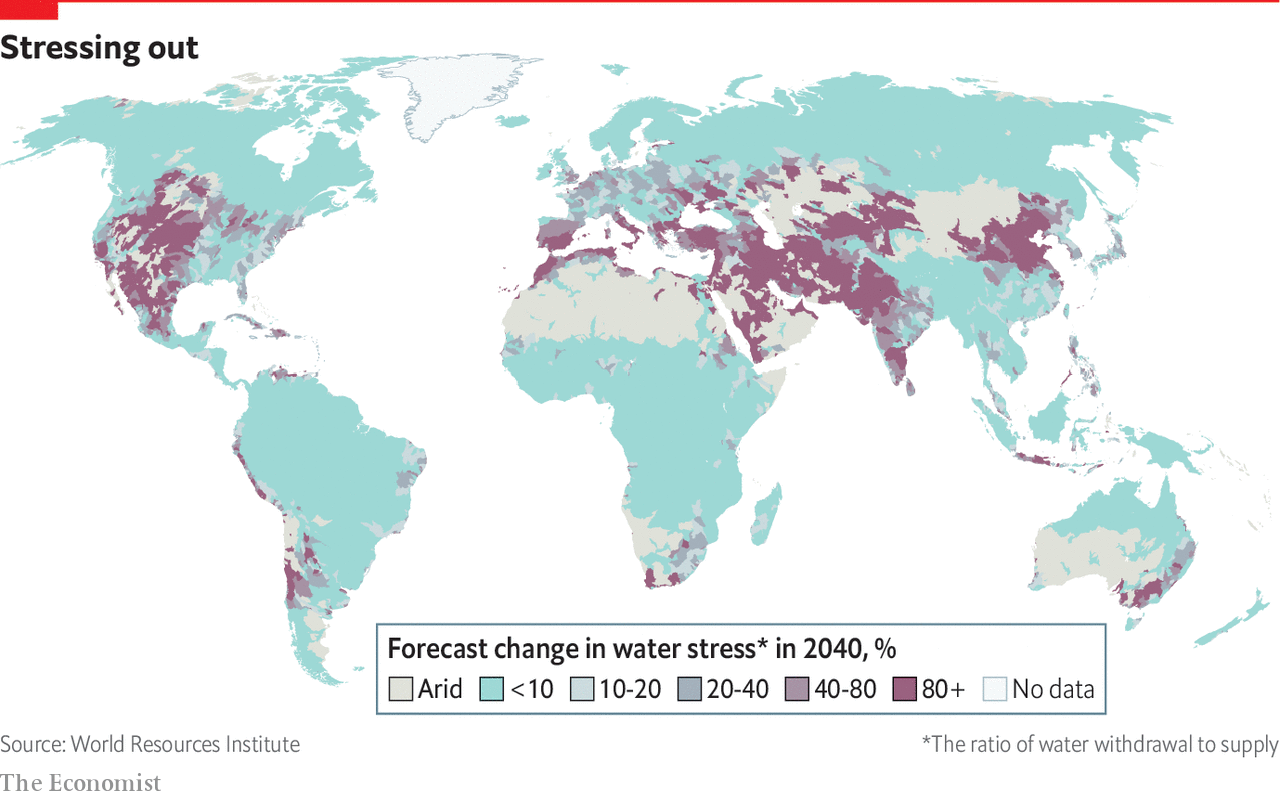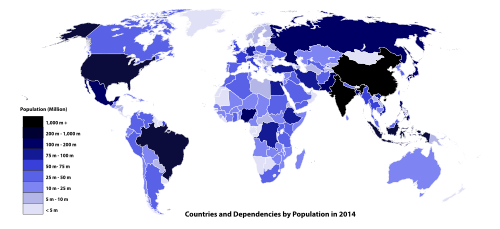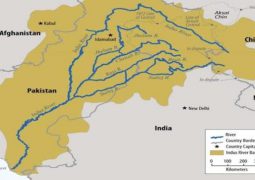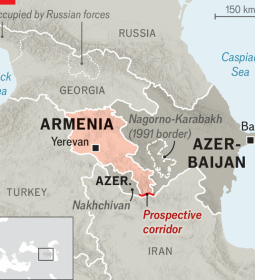Will overpopulation lead to overcrowded Earth Habitat? Demographic issues on World Population Day

Overpopulation: Racist ‘dog whistle’ or fuel for climate crisis?
UN highlights demographic issues on World Population Day, as young activists meet in Miami to slim carbon footprints.
![Overpopulation: Racist 'dog whistle' or fuel for climate crisis? The United Nations has said that emissions are not distributed equally across the world [Kacper Pempel/Reuters]](https://www.aljazeera.com/mritems/imagecache/mbdxxlarge/mritems/Images/2019/7/11/1b6a967c5d0a49d798ace78e55adb72f_18.jpg)
“It’s really scary to me,” said 17-year-old activist Jamie Margolin, reflecting on worst-case scenarios for the year 2100 – when the United Nations (UN) predicts the world’s population could swell to around 11 billion people. “I see a lot of deaths, and rapid decline.”
Margolin, the founder of climate justice group Zero Hour, described to Al Jazeera what could be in store for humanity at the end of this century if population growth compounds what many are already calling a climate emergency.
“People are getting killed. There’s dictatorship, genocide and ecological panic,” she said. “Having an unstable environment triggers political unrest. So it’s not just about temperature.”
With the United Nations observing World Population Day on Thursday, the international community is calling attention to poverty and sustainability for the earth’s 7.7 billion people.
While a growing population requires more electricity and energy – which produce more greenhouse gases, heating up the climate – many activists are wrestling with the question of what demographic expansion means for their movement.
As the Youth Climate Summit convenes this weekend in Miami, Florida in the United States, attendees representing a range of environmental groups – from Earth Uprising to Extinction Rebellion – are considering how to step up the political pressure to ensure their generation has a future.
‘Stop having so many babies’
On the one hand, some young activists, including Margolin, cite overcrowding and the worsening climate crisis as reasons why they should never have children, and why they should focus on mitigating the consequences of climate change for people already on Earth.
But Margolin is loath to have her concerns weaponised by climate change deniers who claim that population is the biggest problem. “That’s a dog whistle for very racist ideologues, [saying that] people from black and brown countries should stop having so many babies,” she said.
A common refrain from climate sceptics – including Republican Senator Mike Lee of Utah, who urged US President Donald Trump to withdraw from the UN’s 2015 Paris Agreement – is that Americans should have more children to secure a better future for the country.
“The solution to climate change won’t be found in political posturing or virtue signaling,” Lee said in a March debate about the politically stagnant federal Green New Deal, adding that – rather than government action – the answer is “in churches, in wedding chapels, in maternity wards across the country and around the world”.
“More babies will mean forward-looking adults, the sort we need to tackle long-term large-scale problems,” the US senator said.
“American babies, in particular, are likely going to be wealthier, better educated and more conservation-minded than children raised in still-industrialising countries.”
‘Need more resources’
Ritvik Janamsetty, a spokesperson for Earth Uprising – a global youth network fighting against climate change that is participating in the Miami summit – says that the planet’s demographic prospects don’t bode well, but that the relationship between population growth and carbon emissions is nuanced.
“There is no doubt that overpopulation is exacerbating the climate crisis,” Janamsetty told Al Jazeera.
“As more people come onto the earth, humanity will need more resources to support those people,” he added. “The retrieval of those resources, at least in the current world, requires significant emissions of carbon – due to high inputs of energy, which will only increase with more people.”
Without a shift to renewable energy “and as much advanced technology as feasibly possible”, Janamsetty said, “overpopulation will continue to exacerbate the climate crisis”.

“Further, overpopulation puts more people in the line of natural disasters such as hurricanes and droughts, impacting more people than it otherwise would,” he warned.
“My Indian brothers and sisters have already suffered, and next up is cities like Las Vegas, where I live,” the Earth Uprising activist said, before referencing his birthplace in India. “One major drought can create the Chennai water crisis within our own [US] borders.”
At the same time, Janamsetty argues that more developed countries are obliged to help remedy the fact that less developed nations are trying to raise their standard of living rapidly without regard for sustainability.
The best course, he says, is for the industrialised world to transition quickly to green lifestyles, while providing technology to facilitate poorer countries doing the same. Overpopulation could become less of a concern, he argues, if this transfer happens sooner rather than later.
But Janamsetty also says that if fossil fuels are not supplanted by the end of the 21st century, the planet will see a horrific Mad Max-like reality.
“If every person lived like we live in the US, we’d have used up three Earths already,” said Margolin of Zero Hour. “I don’t want to bring someone into this world if it’s going to be unlivable.”
‘Lessen our carbon footprint’
The United Nations Population Fund (UNFPA) emphasises the universal principles around “human rights and freedom of choice, particularly for women and girls to exercise decisions over their own bodies”, said UNFPA media specialist Jeffrey Bates.
“Educating girls and providing universal access to modern forms of family planning means that reproductive decisions and economical usage of resources can lessen our carbon footprint,” he added.
However, Bates made clear that “population, economic growth, and patterns of consumption and production all play a role in climate change. One misconception is that more people automatically equals more emissions … Higher population is usually assumed to mean more eating and drinking, more driving or more energy use – all of which under our current model cause major greenhouse gas emissions”.
“Yet emissions are not equally distributed across the world’s population, any more than the consumption of food or cars, or the use of air conditioning,” Bates told Al Jazeera, drawing attention to vast inequality between – and within – countries.
“Right now, only 2.5 billion people make enough money – more than $10 per day – to consume enough to contribute to emissions,” the UNFPA spokesperson said. “And among this group, a small minority is responsible for an overwhelming share of the damage.”
“The data on population and emissions show that slowing population growth, even rapidly, is not a shortcut to preventing climate change.”
Emissions math
Carbon footprints vary tremendously from nation to nation, with many European countries far more conservation-minded than the US.
Per capita carbon emissions in France and Italy, for example, are about five metric tonnes annually – one-third that of North American nations.
The US and Canada both emit around 15 metric tonnes of per capita carbon emissions, with Australia not far off. Meanwhile, Japan’s figure is in the middle, just under 10 metric tonnes for every person – according to the most recently available 2016 figures from the International Energy Agency that depict just the burning of fossil fuels, but not other economic sectors such as land use and forestry.
Many countries in the Gulf Cooperation Council – including Qatar and Saudi Arabia, but not Oman – emit far more per capita carbon emissions than the US. There are also a number of coastal and small-island countries – including Curacao, Brunei, and Trinidad and Tobago – that have exceedingly heavy emissions records.
At the same time, the world’s largest country by population, China, has a per capita emissions figure close to the European Union (EU) average of six metric tonnes per capita – though overall emissions are more than twice the US total.
India’s emissions are growing, but its per capita total remains low – on par with Kyrgyzstan and Morocco, but nowhere near as small as the per capita figures for populous Nigeria and Bangladesh.
Meanwhile, the world average for emissions per capita (4.35 metric tonnes) is close to that of Sweden – one-fourth that of the United Arab Emirates, but four times the per capita emissions for El Salvador.
These statistics do not take into account historical emissions, nor the grim projections for the future showing both huge population growth and increasing emissions overall.
According to the Climate Action Tracker, which is maintained by the New Climate Institute, efforts by the US, Russia and Saudi Arabia are “critically insufficient” to slowing climate change. Among the countries listed as “highly insufficient” are China and Japan.
The EU as a whole is labeled “insufficient”, while India is the only country shown to have climate plans consistent with the two-degree Celsius goal for limiting global warming. However, even that range still exceeds the 1.5 degree target set by the UN’s Paris Agreement.
- Previous Shyam Saran, Hindustan Times: Hong Kong protests have dented China’s image of invincibility
- Next The Richest Indian – Anil Ambani plans US$3.2b asset sales to pare massive debt



















